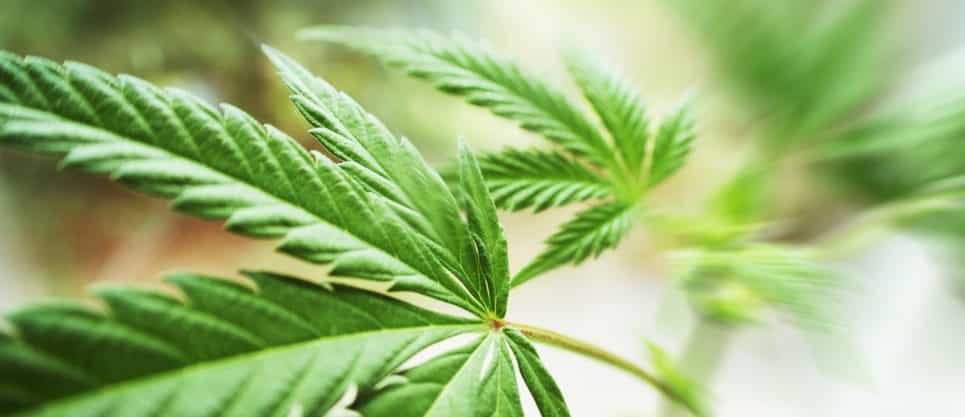Marijuana, also referred to as weed, is a mix of dried leaves and flowers from the Cannabis hemp plant. Most commonly smoked, marijuana can be brewed into a tea and cooked into food to achieve a mind-altering high. It has also been used for chronic pain treatment and healing.
Marijuana contains THC — formally known as tetrahydrocannabinol — the chemical compound responsible for the drug’s euphoric effects. The brain contains receptors that control bodily functions. When inhaled or entered into the bloodstream, THC from marijuana travels to the brain and influences how the brain receptors communicate with the body. This chemical throws off the natural balance of these receptors and other brain chemicals, creating the high people feel.Effectsof this drug are immediate but can take longer to enter the bloodstream if it is eaten.
Although this drug may be used for some medical purposes, the high is coupled with a variety of long-term effects to the brain and to the body. As with any drug, it is important to know the level of risk when using.

How Marijuana Affects the Body
When smoked, THC chemicals travel straight from the bloodstream to the lungs.Similar to tobacco smoke, marijuana smoke contains a variety of carcinogens that could be detrimental to a user’s health, increasing the risk of lung cancer. These same chemicals travel to the remainder of the body, including the heart. A marijuana high can elevate the heart rate, which could put heart disease patients at significant risk for a heart attack.
Treatment Can Be Life Changing. Reach out today.
Whether you are struggling with addiction, mental health or both, our expert team is here to guide you every step of the way. Don’t wait— reach out today to take the first step toward taking control of your life.
Marijuana also poses a significant risk to brain development and functionality. THC levels can heighten a person’s senses, impair coordination and response time. In high doses, marijuana can cause a user to hallucinate or experience anxiety symptoms.
If marijuana is eaten, it can affect the digestive system. In more serious cases, ingesting marijuana can cause nausea and vomiting. It can also cause an increased appetite, making the user crave food.
How Does Marijuana Enter the Body?
Dried marijuana leaves can be ingested several different ways. Most commonly, marijuana users smoke the drug. There are several ways to smoke cannabis:
- As a joint, or marijuana cigarette
- As a blunt, or marijuana cigar
- Using glass pipes, called bowls
- Using glass water pipes, called bongs
Marijuana can also be used when making food or drink items, callededibles. Some common examples of edibles include pot brownies and pot gummies.
Cannabis and the Brain
Although marijuana has a number of medical benefits, it can play a significant role in brain development and functionality. When THC enters the bloodstream, it is quickly carried to the brain, affecting brain cell receptors responsible for normal functionality. When cannabis over-activates these receptors, it causes a euphoric high that can make users feel happy, productive or sleepy. Other side effects of marijuana use include:
- Heightened senses
- Changes in mood
- Slowed judgement
- Impaired memory and thinking
- Difficulty problem-solving
- Cardiac complications
Extensive marijuana use also affects long-term cognitive abilities. The brain continues to develop well into a person’s 20s, so any influence on the brain stemming from youth can have damaging effects. Studies show that frequent marijuana use from adolescence through adulthood can result in a loss of up to eight IQ points that can never be recovered. In addition, using marijuana during youth can affect the verbal ability and the ability to learn new information.
Marijuana can be detrimental for individuals who suffer from long-standing mental illnesses. Typical effects of the drug can worsen symptoms of common mental disorders, including depression, anxiety and schizophrenia. Other long-term effects of marijuana include:
- Temporary hallucinations
- Temporary paranoia
- Disorganized thinking
- Suicidal thoughts
- Fertility issues
Is Marijuana Addictive?
Marijuana does have the ability to become addictive. In fact, one in 11 marijuana users will become addicted to the drug after frequent use. Those who suffer from mental illness are also more likely to suffer from marijuana use disorder. Those with anxiety, for example, may rely more heavily on the drug versus an individual without mental illness because marijuana has calming effects on the brain and the body. If the brain has developed a tolerance, those with anxiety will tend to use more marijuana or higher doses of THC to feel the same sense of relief, potentially leading to a physical dependence.
It is also possible to overdose on marijuana. While research shows death is unlikely, amarijuana overdosecan lead to some very severe side effects and health issues including:
- Uncontrollable shaking
- Elevated heart rate
- Pale skin
- Shortness of breath
- Unresponsiveness
- Dilated pupils
- Nausea
- Disorientation
- Temporary paranoia and anxiety
Marijuana overdose symptoms can last from minutes to hours. If users show more serious reactions to the drug, medical treatment may be necessary to prevent complications.
Getting Help for Cannabis Abuse
Every day, thousands of people are admitted to treatment for marijuana, and other substance, abuse. You are not in this fight alone. If you or someone you know are abusing marijuana or may be addicted to the drug, treatment is available to you. Let The Recovery Village guide you in finding the best treatment option, personalized to fit your journey. Calling is free and completely confidential — reach out today to get started.






